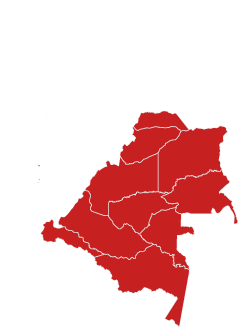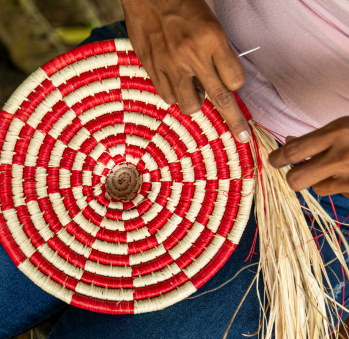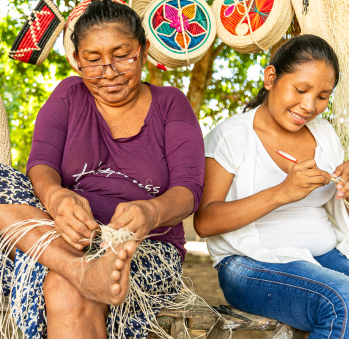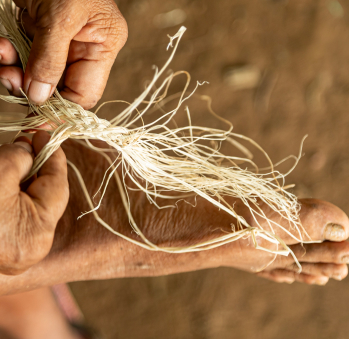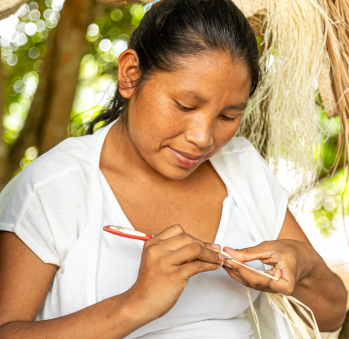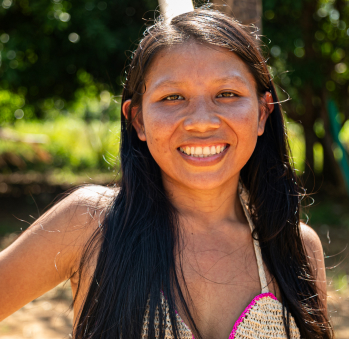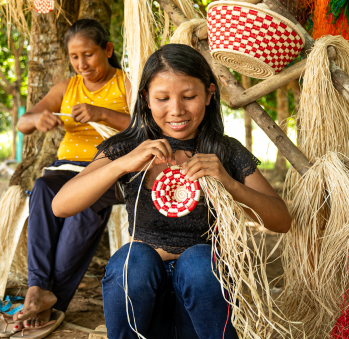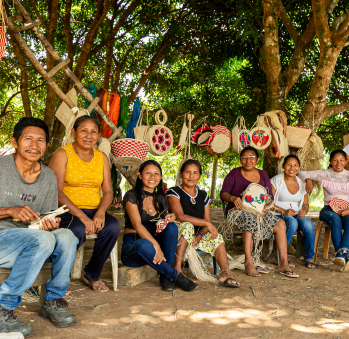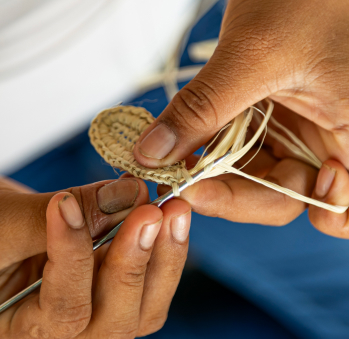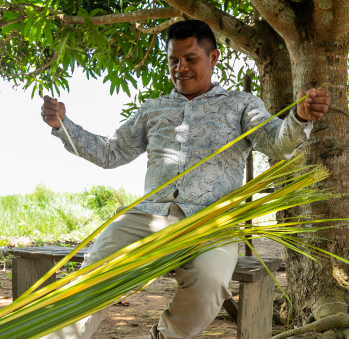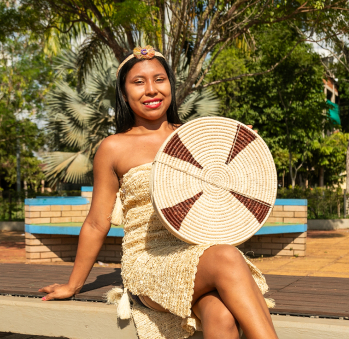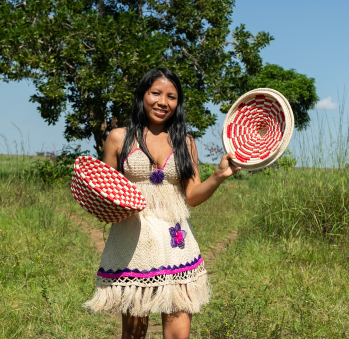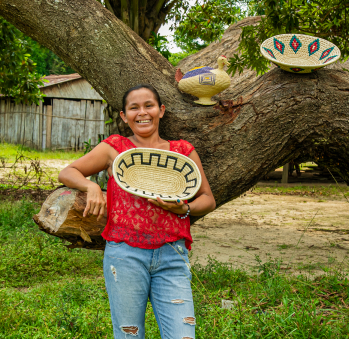Laura Amparo Ramírez Ponare
Workshop: Artesanías Laura
Craft: Tejeduría
Trail: Vichada Route
Location: Cumaribo, Vichada
SCHEDULE YOUR VISIT
Resguardo de Santa Teresita del Tuparro, Cumaribo, Vichada
3237780336
larp111@gmail.com
For Laura, words are the vessels of storytelling, a practice she engages in constantly, imbuing her narratives with moving beauty. In her household, she, her mother, and her six sisters communicate with a resounding voice that carries authority but not anger. Through their collective voices, they steer the universe. Laura draws inspiration from her family, considering them the epitome of embodying her Sikuani heritage with dignity and resilience.
Her father hailed from the lineage of the founders of the Santa Teresita del Tuparro Indigenous Reservation. After a nomadic life in various places in Vichada, he made a resolute decision to reclaim the land of his ancestors. With the aid of a census, he reclaimed their ancestral land alongside eight other families in 2012, assuming the role of the community’s captain. Presently, Laura’s elder sister, Nelly Janeth, holds the position of captain, a woman distinguished for her persuasive eloquence and advocacy. Laura takes immense pride in her family.
At twenty years old, Laura is fortified by a history that spans centuries. Her tales encapsulate the myth of the tree of life, the grand Kaliawirinae, which, before metamorphosing into sustenance, was once a boy wandering the rainforest with his grandmother. In that era, the Earth yielded no fruits, and people subsisted on the dirt turned into flour from the boy’s skin. Eventually, after the hunger, the boy transformed into the tree of life, bearing the richness of the rainforest. However, this tree, located in present-day Venezuelan soil, became a victim of tree fellers greed, as depicted in the myth—a cautionary tale advocating protection against selfish people.
The Sikuani people acknowledge the perils they confront, much like numerous other indigenous communities. Despite these challenges, they persist and resist. Fear and necessity have compelled them into nomadic lifestyles, causing their traditions to wane. Consequently, weaving tradition did not initially pass down through Laura’s grandmother but was introduced by her mother, Carmen Ponare, during Laura’s adulthood. At eighteen, Carmen recognized the potential for trading Sikuani baskets for necessities and taught her mother and sisters, Laura’s aunts, the craft, thereby reclaiming their ancestral wisdom.
Carmen transformed her newfound skill into a livelihood, passing down this knowledge to her daughters—a resource that sustained her family during her husband’s prolonged absences in the rainforest. Laura sees each woman in her family as a skilled artisan, adept at crafting bags and baskets from moriche palm and cumare fibers that serve as cultural symbols. Moreover, they have innovatively incorporated contemporary designs while preserving the profound essence of their identity. While Laura resides in Cumaribo, the rest of her family lives three kilometers away in Santa Teresita. Each practices their craft at home, convening to sell their creations or guide tourists through the reservation, offering cultural immersion experiences. It is hard not to be delighted by her voice, which she uses for telling, in a paused and lilting tone, about the shape of the lagoon neighboring the La Raya reservation. Watched from above, its shape reveals itself, the one of a girl once ensnared in its waters and turned into a mermaid by an unknown or white man who incarnated in a fish, who currently stalks young menstruating women or children undergoing weaning. That’s why they pray to both the fish prayer, for being safe from any harm. And that’s how life goes on for these storytellers, awaiting for us to visit her territory and be enchanted by its beauty.
Craft
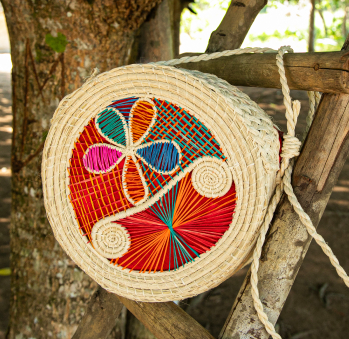
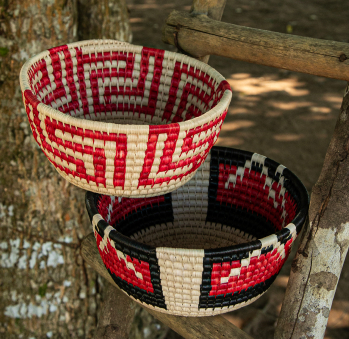
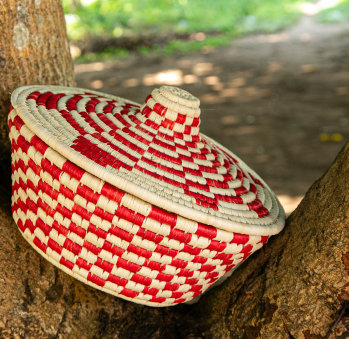
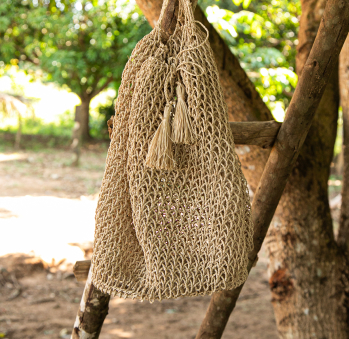
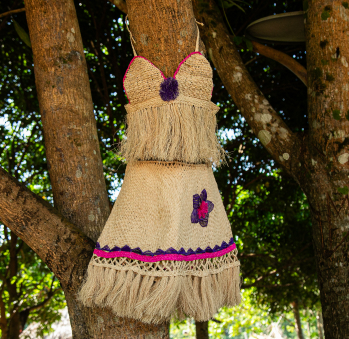
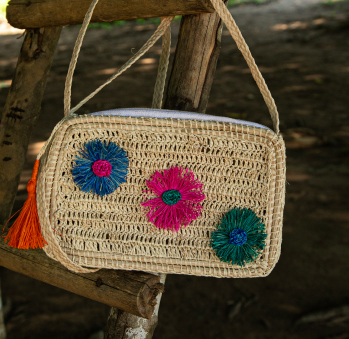
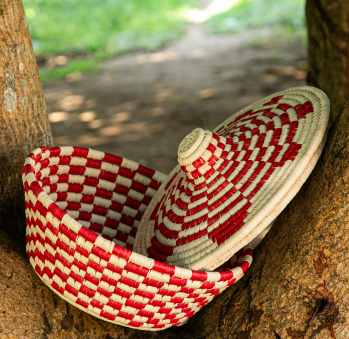
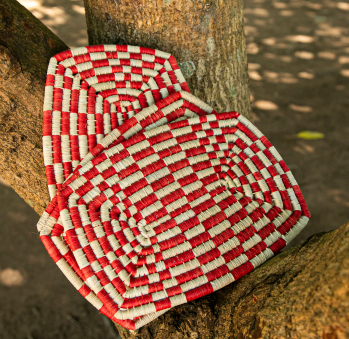
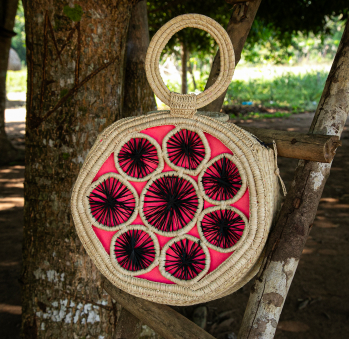
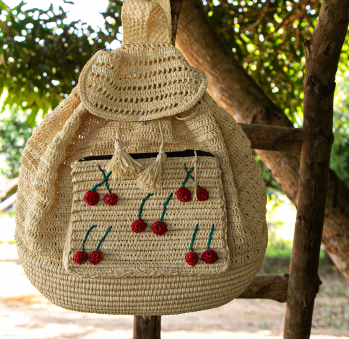
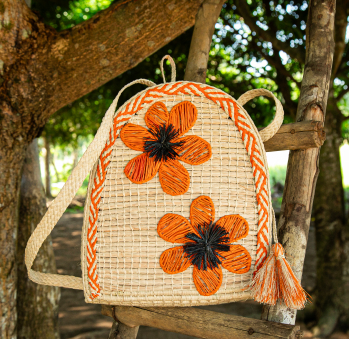
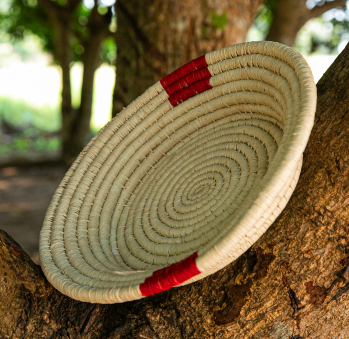












Artisans along the way
Artisans along the way
No puede copiar contenido de esta página

